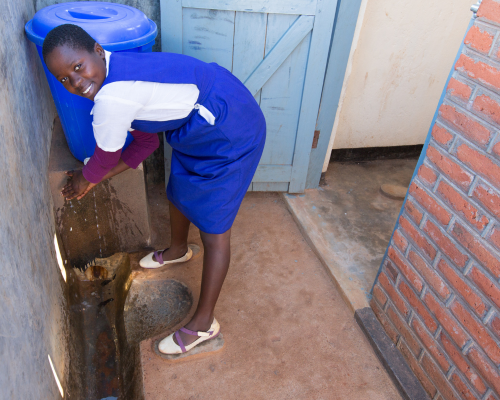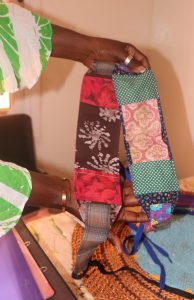On any given day, more than 800 million women worldwide are menstruating. On that same day, millions of these women are stigmatised and excluded simply because they do.
Menstrual Hygiene Day takes place on the 28th of May, each year. The annual awareness day was started with the purpose of breaking taboos surrounding menstruation and raising global awareness around the importance of menstrual health and hygiene management.
A UNESCO report found that 1 in 10 girls in Sub-Saharan Africa missed school while on their period because they don’t have access to menstrual products or adequate sanitation. Termed ‘period poverty,’ today, it affects an estimated 500 million women and girls worldwide.
A combination of period poverty and traditional taboos surrounding menstruation has caused many young women to drop out of school. It has worsened existing social and economic gender inequalities.
To effectively manage their menstruation, girls and women require safe access to water, sanitation and hygiene (WASH) facilities, affordable sanitary products, menstrual health management education and most importantly, a supportive environment.
Gender equality lies at the core of all our work at Self Help Africa. We are improving gender-friendly WASH facilities in schools, promoting adequate practices for menstrual hygiene management and are supporting the local manufacturing of reusable sanitary pads. Our approach has benefited tens of thousands of women and girls.
15 year old Malawian schoolgirl Ivy describes how available water and washing facilities has meant that she no longer skips school during her period. “My performance in class has improved as I can be in school every single day. Before, my friends didn’t use the facility because of the boys made fun of us. We are all now doing better in school,” she says.
In The Gambia, we are supporting the Women’s Initiative Gambia to manufacture reusable menstrual pads from recycled materials. Through training and employment, women are taking control of their financial futures while contributing to the menstrual health and awareness ecosystem.
We strive to build a world where no one is held back because they menstruate, a world where every girl or woman can manage her menstruation safely and hygienically, with dignity and confidence.
You can support more girls like Ivy today for as little as €5 – when you buy a menstrual hygiene kit.




